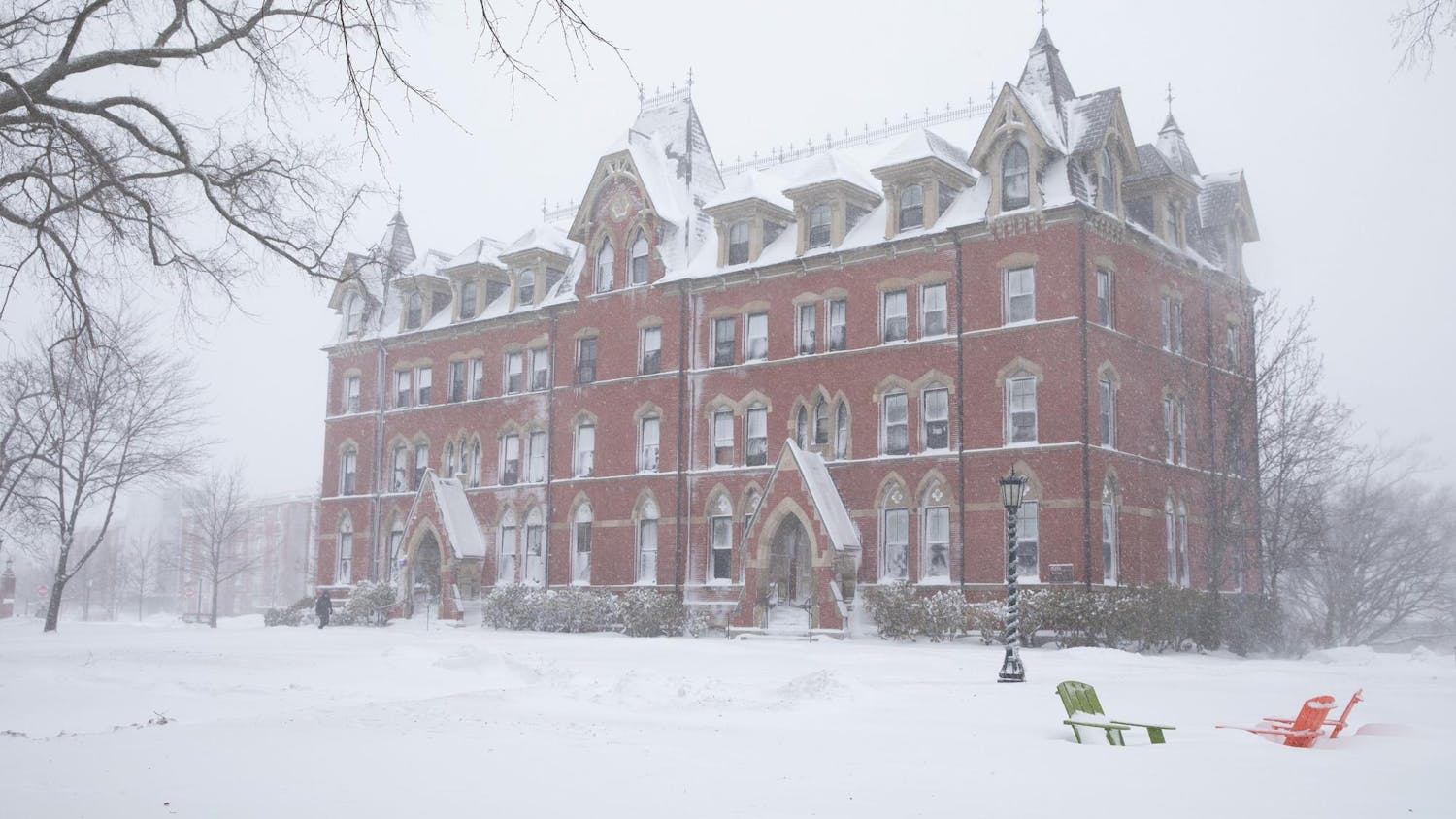University administrators and Somerville city aldermen collaborated to revise the city's proposed University Accountability Ordinance during the Dec. 3 meeting of the Board of Aldermen's Legislative Matters Committee.
The proposed ordinance, which was initially introduced during the board's Aug. 28 meeting, would require universities that have students living within Somerville limits to submit a list of student addresses and the number of students living in each apartment to the city.
The city of Somerville has an existing zoning ordinance that limits the number of unrelated adults sharing an apartment to four. According to Section III of the proposed ordinance, the collected information would allow the city to better enforce this existing regulation.
According to Tufts Community Union (TCU) President Robert Joseph, who attended the committee meeting on behalf of the student body, university administrators were successful in working with committee members to resolve wording problems with the draft ordinance.
"We shifted the focus away from evicting students and toward student safety, which was really what we were hoping the ordinance would be geared toward doing," Joseph, a senior, said. "I would not be surprised if Somerville did pass the ordinance ... I think the biggest thing that could come out of it is that we could partner with the city of Somerville to help students ensure that they have reasonable living conditions."
On Dec. 1, Senior Vice President for University Relations and General Counsel Mary Jeka and Director of Community Relations Barbara Rubel sent a letter to Alderman Mary Jo Rossetti, the chair of the Legislative Matters Committee, affirming the university's commitment to working with the city, but addressing concerns with the draft ordinance's language.
According to Jeka, who spoke at length about the university's position during the Dec. 3 meeting, the university is concerned about the welfare of students who live off campus and hopes that the ordinance can address these concerns.
"We want the focus ... to be on the health and safety ... and the compliance with the local codes of these housing units," Jeka said. "We feel that it is the appropriate responsibility of the landlords and we fully and 100 percent support that. We want our students to be safe -- that's very important to us."
Jeka, who was accompanied at the meeting by Rubel and Dean of Student Affairs Mary Pat McMahon, expressed concern, however, that the language of the current draft ordinance implicated the university in enforcing its provisions.
"It kind of imposes responsibility on Tufts University for determining violations ... of this proposed ordinance, and that is not a responsibility that Tufts is able to take on, because we feel that that would be the responsibility of the city to take on," Jeka said. "We would of course notify our students of this ordinance and make sure that they are quite aware that the ordinance prevents any more [than] four students from living together."
Jeka and Rubel explained how the university is working to comply with a city of Boston ordinance of the same nature, and explained that the university is willing to provide Somerville with a directory of student addresses. They emphasized that student names would not be included in the information given to the city, a provision with which the aldermen agreed.
Alderman At Large John Conn0lly and Ward 5 Alderman Mark Niedergang further addressed the process through which non-compliant housing units would be inspected, and Niedergang explained that communication from inspectors should go through students' landlords.
"It's really the landlord's responsibility," Niedergang said. "I actually think that in most cases the students are unaware of [the zoning ordinance], and it's not their fault. I think the reality of it is that we all know that many houses have more than four unrelated people living together.
Meeting attendees also heard from Michael Glavin, the executive director of Somerville's Office of Strategic Planning and Community Development, who explained that the university would be assisting the city in finding properties that may have health and safety code violations. He added that the city's Inspectional Services Division would seek to enforce the existing ordinance preventing more than four unrelated adults -- be they students or non-students -- from living together for both students and non-students residing within the city.
"We'd like to be able to coordinate our efforts with the university, perhaps distributing a pamphlet with our help," Glavin said. "This is supposed to be a win-win scenario, safer for students, safer for the community, making sure landlords are responsible."
In addition to seeking revised language to ensure the university itself would not have to notify students they are in violation the ordinance, Jeka and Joseph spoke about the increased rent many students are facing due to landlords seeking greater profits. Joseph, in particular, told aldermen about students signing leases with only four names but with the expectation that more would occupy the apartment and pay rent. If those extra students were to be evicted -- an action that may be easier if their names are not on the lease -- the other students could potentially be held accountable for their rent.
Rossetti, however, explained that many residents other than students are also concerned about high rents.
"The homeowners, who are my bosses, are angry with the taxes that they are paying for their properties and their upkeep, and if they're living next door to a home that has more than four students, they feel sorry for you if you're going to get that higher rent, but it's not their headache," she said. "Their headache is that they're abiding by the ordinances in our city and some are choosing not to."
The meeting was productive for the university and its students, according to Joseph, who commended the administration for its efforts.
"I think the administration has responded appropriately ... they recognized the possibilities and realities of harm to students living around here, and the administration is now aware of the issue ... and they have been responding to it," Joseph said. "I was at the meeting with three administrators, and I really appreciated the fact that they all turned out from 7 to 9 on a Wednesday night to [come to] this meeting to try to convince the city of Somerville that this ordinance, as it was, was not going to work out and was not in the best interest of students."
A revised version of the draft ordinance will be discussed at a committee meeting on Dec. 16, and if committee members vote in its favor, the full city council could vote on it when it meets in early January.
More from The Tufts Daily





